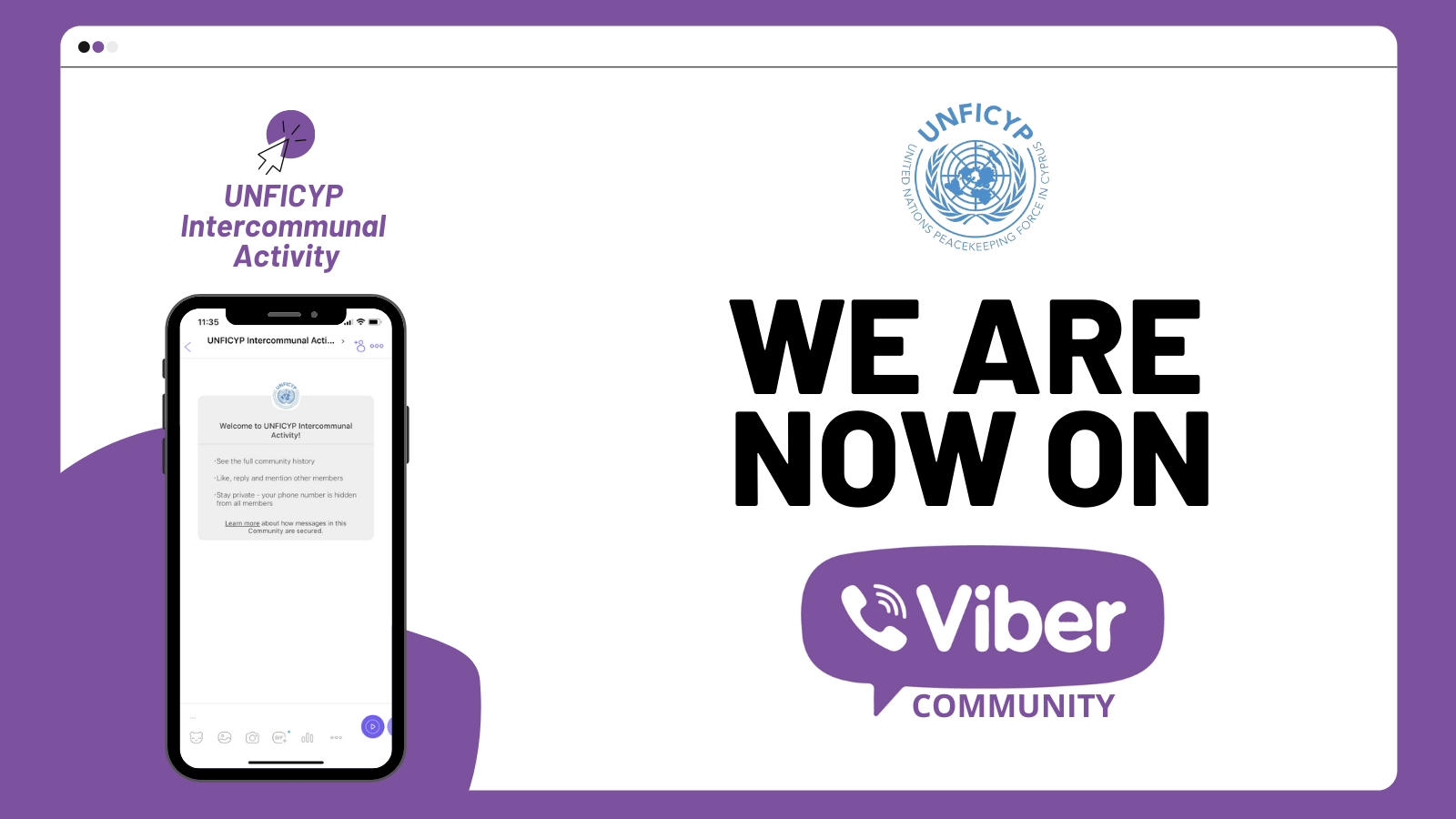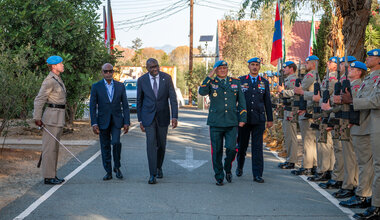Top UN official in Cyprus, Colin Stewart, speaks at the bicommunal water and energy sustainability and waste management conference
Remarks of Mr Colin Stewart, Special Representative of the Secretary-General, Head of UNFICYP and Deputy Special Adviser on Cyprus
“Sustainability of the water and energy supply and waste management in Cyprus in the context of a peaceful, fair and workable settlement of the Cyprus Problem and the wider issue of climate change”
Good morning,
Thank you to the Cyprus Peace and Dialogue Center, the Glafkos Clerides Institute and the Next Century Foundation, for the invitation. It’s a pleasure to be here. The issues of sustainable water and wastewater management are of vital importance to the well-being and livelihoods of all Cypriots, as are environmental issues generally.
As we all know, environmental issues do not recognize borders, or the green line on this island – they affect everyone equally. Environmental challenges such as biodiversity loss, poor air quality, wildfires, floods, unsustainable farming and the threat of the climate crisis are becoming more serious, affect everyone and therefore require collective solutions.
Bringing people together – civil society and experts, north and south – to protect the environment can also help break down some of the divisions on this island – not only north and south, but between hardliners and pro-solutionist, and open new channels of dialogue, giving an important reason for cooperation. We have seen this in our own work, where bicommunal environmental projects we have supported have led to enduring relationships between people from different communities who had previously never met. Conferences such as this are important steps to empower and enable experts, NGOs and the public to share knowledge and discuss innovative solutions.
The UN in Cyprus, as part of its mandate, and simply as part of its responsibility as a local actor, has invested significantly in environmental peacebuilding and in limiting its own environmental footprint. First, we facilitate the Technical Committee on Environment, some of whose members may be in this room, as part of the formal track 1 process between the two sides where bicommunal environmental experts from both communities come together and develop consensus on initiatives that benefit the whole island.
I am sure you will hear more about these initiatives over the course of your discussions, and I am equally sure the Technical Committee will be keen to hear the conclusions or recommendations come out of this event.
One of the initiatives we have been supporting is a major proposed bicommunal sola power plant in the buffer zone. With EU funding and implementation by UNDP, the technical-feasibility study is wrapping up and we look forward to moving forward with this exciting project.
[I am delighted to see several young people in the room]. Youth groups in Cyprus are passionately working to secure better environmental futures on the island. The UN is proud to partner with them where we can. We have been working with young people to nurture an island-wide youth movement for environment and peace. This has been the aim of the UN Youth Champions for Environment and Peace programme, which we launched in 2020. So far, more than 80 young people living in Cyprus have participated in the programme and most of whom continue to be actively engaged in environmental peacebuilding. The creation of AVLI, a non-governmental organization made up of Youth Champions alumni, who are collaborating on campaigns aimed at building peace and safeguarding the environment, is one example.
In addition, many of the program’s alumni were behind the organization of local conferences of youth -- LCOY 2022 and LCOY 2023 – in support of the annual Conference of the Parties, the decision-making body of the UN Conference on Climate Change. They also created the Local Youth Conference on Climate Change. The UN has partnered with local groups such as SPOT – who will be presenting later in the programme – to organize beach clean-ups that contribute to marine ecosystem conservation. Many of my fellow colleagues and I have had the pleasure to participate in such activities.
We also take seriously our responsibility to reduce our own carbon footprint. The UN in Cyprus is regulating its own usage of fuel, water, and electricity, renewing its fleet with hybrid cars, reducing the usage of single-use plastic, recycling waste throughout its operations and installing solar energy plants. We are taking coordinated actions to “Green the Green Line” through clean-ups of the buffer zone and elsewhere.
Working together on the environment is of course a crucial investment in and of itself, but – of particular importance to the UN’s mandate in Cyprus -- it also has important benefits and opportunities for peace. Public opinion polling has shown that the greater interaction between the communities – for whatever reason – the greater the understanding and trust. Without trust, I believe there can never be a sustainable solution on the island. To address the current political impasse and division on the island, fostering trust-building is a key approach of the UN, and civil society plays a key role in this strategy. Sustainable peacebuilding is not something that happens only at the level of political leaders – it also has to be built from the bottom-up. And this is exactly what you are doing here today.
I wish you a very fruitful conference and look forward to the outcome.
 UN
UN United Nations Peacekeeping
United Nations Peacekeeping






